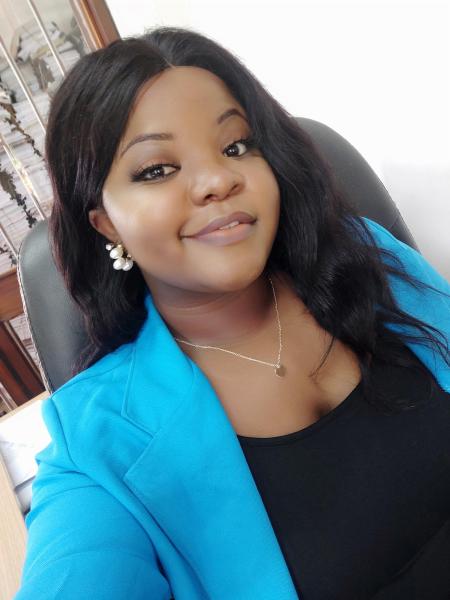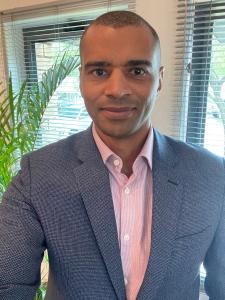On a Malawi road project gender equality gets a boost with three women hired as engineer, environmentalist and social worker. Here are their stories
It started on a warm day in October 2019, in the boardroom of the Malawi Road Authority in the capital city of Lilongwe. I had come to appraise what would be the European Investment Bank’s largest-ever project in the country—the rehabilitation of 350 kilometres of the M1 roadway. It’s Malawi’s most important road, running almost its entire length, connecting major cities and providing a link to neighbouring countries and vital trade seaports.
The road has been in bad shape for years. It is so dangerous that only the bravest drive it at night and many die each year. When the European Investment Bank became involved, the road’s asphalt surface was no longer holding shape, leading to many problems. We have been working in Malawi for over 40 years, but this project will have the biggest impact on the people and the economy—and for decades to come.
The road isn’t the only important thing about this project.
As we finalised our €95 million loan for the road, I could not help but notice that the only woman in a room of more than 10 people was our lawyer. I pointed out to the Road Authority people that research overwhelmingly shows that organisations perform better when women and men are balanced at all levels. The head of the authority listened intently and agreed to take action.
Malawi is one of the poorest countries in the world and has one of the highest percentages of people in extreme poverty Most poor people rely on small-scale subsistence farming to survive. Work opportunities, particularly for the young, are limited. Because of all this, it is difficult to describe my joy when three women were selected to start working on the project in March 2021.
It had taken a lot of time and effort, but the project hired three female university graduates, paying them out of a €43 million European Union grant approved for the roadwork. They are gaining experience in working with international experts, learning the best international standards on road building, and actively contributing to the project.
They also just might change their lives.
Each of these women is remarkable in her own way. Here are their stories.
Sekani Sidira, 25, civil engineer
Sekani was born in the Karonga district in the north of the country. Growing up was hard. Her father, a lawyer, passed away when she was five years old. “This shook our whole environment,” she says. “My dad had a good job, but now it was just Mum, who could not find a good job.”
Her mother now had four kids to raise by herself. She also had no higher education, but always encouraged Sekani to learn. “Mum was always very strict about this,” Sekani says. “She said men will always be there, but school will not. She instilled this in me when I was very young.” Sekani did go to school and excelled. She often ended the year top of her class and earned a two-year high school scholarship.
Women have to be ready to do something on their own. You have to be independent

Sekani had a keen interest in engineering. Even though she knew it is a male-dominated field, she pursued it at university. Her biggest obstacle was a limited amount of money to pay for school. To make ends meet, she set up a micro-business selling educational material to students. Sekani has a passion for giving back to the community and volunteered to lecture part-time at the university during weekends. She graduated with an honours degree in civil engineering, specialising in transport. She has a special interest in intelligent transport systems.
Sekani is involved in a wide number of areas of the M1 road project, including supervision, monitoring, quality control, contractor management, road safety and reporting.
“My strong side came from my upbringing,” she says. “Mum always told me, ‘Sekani, I had good kids and a good marriage, but this is not always enough. Women have to be ready to do something on their own. You have to be independent.’”
Delilah Mbvundula, 23, environmental officer
Delilah was the first born in a household that, apart from her father, a public relations officer in a government department, is all female. Her mother never progressed beyond high school, but “she achieved a lot and encouraged me to go where she couldn’t reach,” Delilah says. She had good role models in both parents, but it was mainly her mother and grandmother who encouraged her to gain experience and independence before getting married. “For females, if you want a career, it’s usually a nurse or a teacher, and girls are not encouraged or confident enough to take on science subjects,” Delilah says. “But my mother and grandmother told me that if I have the tools and the education, I could go on to great heights.”
I hope to inspire a few girls—or even a lot of them—to not limit their capabilities.

Delilah realised early on that her passion lay in working in science and nature. She was not attracted to a job where one would be in the office all the time. Hence, studying environmental science at university seemed like a good fit.
Delilah’s role in the M1 project is focusing on the environment, with some social components. Her tasks include working closely with the engineering supervisor’s environmental team, monitoring environmental compliance, and being a project and community liaison on environmental issues. Delilah also helps people affected by the project or those who have to move homes because of the work.
“What I would like to see is the implementation of development in a sustainable way for future generations,” she says. “I also hope to inspire a few girls—or even a lot of them—to not limit their capabilities.”
Jaqueline Singano, 26, sociologist
Jaq, as she prefers to be called, has spent most of her life in the country’s commercial city, Blantyre. She attended Catholic junior and high schools, going on to study social work at the Catholic University of Malawi. Jaq lost her mother when she was 15, but she has an exceptional father who told her she could be anything she desired.
Unlike many traditional fathers, Jaq’s father pushed her to work hard and encouraged her to focus on school. “This is unusual, because most fathers would push daughters towards marriage,” she says. Her father strongly supported her wish to go to university. He even helped her prepare for the Road Authority gender programme.

My plan is to empower women and be a role model for many others
Jaq developed an interest in the plight of marginalised people in the community, believing that they need a voice and far more support. She started to research and target a career in social work in her final high school years. Jaq’s contribution to the road project is focused on social issues, such as the analysis of gender discrimination, monitoring of social mitigation measures, coordination with the community and government agencies and ministries, training and awareness, and social risk management, including gender mainstreaming.
“I’m glad this project is promoting women, because my plan is to empower women and be a role model for many others,” she says.
Fighting the odds
In a male-dominated environment, where opportunities for women are very limited—where they are mostly expected to stay at home, have children and maintain the household—I’m encouraged to see so much hope in these three women who have fought against the odds most of their lives.
Luck is preparation meeting opportunity. These young women have demonstrated personal strength and ambition in preparing themselves for this opportunity. They will be a valuable resource on the project and I cannot wait to see how they develop while the new road progresses.
These are only three individuals, but they walk a road less travelled by women in Malawi and will serve as role models for young girls across the country who dream of equal opportunity and better lives.
